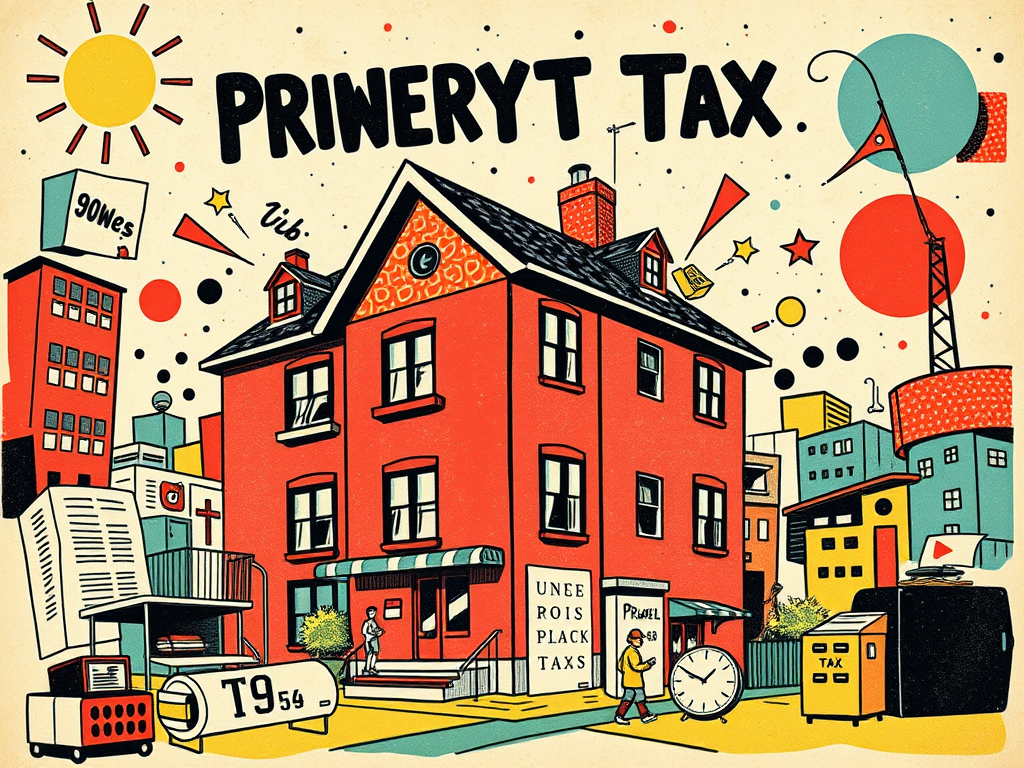
Global Investor Perspectives: Chinese, Russian, and American Experiences in the Greek Golden Visa Program
Reading time: 15 minutes
Table of Contents
- Introduction
- The Greek Golden Visa Program: An Overview
- Chinese Investors in Greece
- Russian Investors in Greece
- American Investors in Greece
- Comparative Analysis of Investor Experiences
- Economic Impact on Greece
- Future Outlook for the Greek Golden Visa Program
- Conclusion
- FAQs
Introduction
The Greek Golden Visa Program has emerged as a beacon of opportunity for global investors seeking to diversify their portfolios and secure residency in a European Union member state. This comprehensive analysis delves into the experiences of Chinese, Russian, and American investors who have navigated the intricacies of this program, offering valuable insights into the motivations, challenges, and outcomes of their investment journeys in Greece.
As we explore these diverse perspectives, we’ll uncover the unique economic and cultural factors that drive investment decisions, the impact on the Greek real estate market, and the broader implications for international capital flows. By examining these case studies, we aim to provide a nuanced understanding of the global investor landscape in Greece and its potential for shaping future economic trends.
The Greek Golden Visa Program: An Overview
Launched in 2013, the Greek Golden Visa Program offers non-EU nationals the opportunity to obtain residency permits through strategic investments in Greek real estate. The program requires a minimum investment of €250,000 in property, making it one of the most accessible golden visa schemes in Europe. This initiative has not only attracted significant foreign direct investment but has also played a crucial role in revitalizing the Greek real estate sector following the economic crisis.
Key features of the program include:
- Five-year residency permits, renewable every five years
- Visa-free travel within the Schengen Area
- No minimum stay requirements
- Option to rent out the investment property
- Potential pathway to citizenship after seven years of residency
These attractive conditions have made the Greek Golden Visa Program particularly appealing to investors from China, Russia, and the United States, each bringing their unique perspectives and investment strategies to the Greek market.
Chinese Investors in Greece
Motivations and Investment Patterns
Chinese investors have been at the forefront of the Greek Golden Visa Program, consistently ranking as the top applicants since its inception. Their interest in Greek real estate is driven by several factors:
- Diversification of assets outside of China
- Access to European education for their children
- Potential for long-term capital appreciation in the Greek market
- Cultural affinity for property ownership
Chinese investors typically focus on residential properties in Athens and Thessaloniki, with a growing interest in houses for sale in athens. Many opt for new developments or recently renovated properties, often purchasing multiple units to meet the investment threshold and create rental income opportunities.
Challenges and Adaptation
Despite their enthusiasm, Chinese investors face unique challenges in the Greek market:
- Language barriers and cultural differences in business practices
- Navigating Greek bureaucracy and legal procedures
- Concerns about property management from afar
To address these issues, many Chinese investors work with specialized real estate agencies and legal firms that cater to Chinese clients. These intermediaries play a crucial role in facilitating transactions and providing ongoing support for property management and visa renewals.
Russian Investors in Greece
Investment Strategies and Preferences
Russian investors represent the second-largest group of applicants for the Greek Golden Visa Program. Their approach to Greek real estate investment is characterized by:
- A preference for high-end properties in prime locations
- Interest in both residential and commercial real estate
- Strategic investments with a view to potential EU expansion
- Appreciation for Greece’s cultural and historical ties to Russia
Russian investors often gravitate towards luxury villas on the Greek islands, particularly in areas like Mykonos and Santorini. In urban centers, they show a keen interest in upscale apartments and boutique hotels, viewing these as both lifestyle and business investments.
Regulatory Considerations and Market Adaptation
Russian investors have had to navigate additional regulatory scrutiny in recent years due to geopolitical tensions. This has led to:
- Increased due diligence in financial transactions
- Greater emphasis on transparency in investment sources
- Adaptation to changing international banking regulations
Despite these challenges, Russian investors have shown remarkable resilience and adaptability in the Greek market. Many have established strong local networks and partnerships, facilitating smoother transactions and long-term investment strategies.
American Investors in Greece
Emerging Trends and Investment Rationale
While not as numerous as Chinese or Russian investors, American participation in the Greek Golden Visa Program has been steadily increasing. American investors are drawn to Greece for various reasons:
- Attractive property valuations compared to other European markets
- Potential for high rental yields, especially in tourist-heavy areas
- Lifestyle considerations, including retirement planning
- Opportunities in the growing Greek tech and startup ecosystem
American investors often take a diversified approach, combining residential property investments with stakes in commercial real estate or local businesses. There’s a growing trend of Americans purchasing and renovating traditional Greek properties, contributing to the revitalization of historic neighborhoods.
Cultural Integration and Long-term Outlook
American investors in Greece tend to exhibit a strong interest in cultural integration and community involvement. This is reflected in their investment choices and post-investment activities:
- Preference for properties in areas with established expat communities
- Active participation in local business networks and cultural events
- Long-term perspective on property ownership, often with plans for extended stays
This approach has led to positive reception from local communities and has facilitated smoother integration into the Greek lifestyle and business environment.
Comparative Analysis of Investor Experiences
When comparing the experiences of Chinese, Russian, and American investors in the Greek Golden Visa Program, several key differences and similarities emerge:
Investment Scale and Property Types
- Chinese investors often focus on multiple, moderately priced properties
- Russian investors tend to prefer high-value, luxury real estate
- American investors show a mix of both approaches, with a leaning towards unique or historically significant properties
Regulatory Navigation
- Chinese investors face the most significant language and cultural barriers
- Russian investors navigate additional financial scrutiny
- American investors generally find it easier to adapt to Greek bureaucratic processes
Long-term Intentions
- Chinese investors often view their Greek properties as part of a global investment portfolio
- Russian investors balance lifestyle considerations with business opportunities
- American investors show the highest likelihood of using their properties for extended personal stays
These differences highlight the diverse motivations and approaches of global investors in the Greek market, contributing to a rich and dynamic real estate landscape.
Economic Impact on Greece
The influx of foreign investment through the Golden Visa Program has had a significant impact on the Greek economy:
- Revitalization of the real estate sector, particularly in urban centers and popular tourist destinations
- Increased foreign direct investment, contributing to economic recovery post-crisis
- Creation of jobs in construction, property management, and related services
- Boost to local economies through increased spending by foreign residents
However, the program has also faced criticism for potentially inflating property prices in certain areas, making housing less affordable for local residents. Balancing the benefits of foreign investment with the needs of the domestic population remains an ongoing challenge for Greek policymakers.
Future Outlook for the Greek Golden Visa Program
As the Greek Golden Visa Program evolves, several trends and potential changes are worth noting:
- Possible increases in the minimum investment threshold to align with other EU countries
- Greater emphasis on investments in underdeveloped regions to promote balanced economic growth
- Potential introduction of alternative investment options beyond real estate
- Increased scrutiny and due diligence procedures to ensure program integrity
These potential developments could reshape the investor landscape, potentially attracting a more diverse range of global investors and further contributing to Greece’s economic recovery and growth.
Conclusion
The Greek Golden Visa Program has successfully attracted a diverse array of global investors, each bringing unique perspectives and strategies to the Greek real estate market. Chinese, Russian, and American investors have played significant roles in shaping the program’s success, contributing to Greece’s economic recovery while pursuing their own investment and lifestyle goals.
As the program continues to evolve, it will likely face new challenges and opportunities. Balancing the needs of foreign investors with those of local communities, adapting to changing global economic conditions, and maintaining the attractiveness of the program in a competitive international landscape will be key to its long-term success.
The experiences of these diverse investor groups offer valuable insights into the dynamics of global real estate investment and the potential for such programs to drive economic growth. As Greece looks to the future, the continued success of the Golden Visa Program will depend on its ability to adapt to changing investor needs while maximizing benefits for the Greek economy and its citizens.
FAQs
1. What is the minimum investment required for the Greek Golden Visa Program?
The current minimum investment required for the Greek Golden Visa Program is €250,000 in real estate. This threshold makes it one of the most accessible golden visa programs in Europe.
2. Can Golden Visa holders work in Greece?
Yes, Golden Visa holders are allowed to work in Greece. The residency permit grants them the right to engage in economic activities, including employment and entrepreneurship.
3. How long does it take to process a Greek Golden Visa application?
The processing time for a Greek Golden Visa application typically ranges from 2 to 4 months, depending on the completeness of the application and the current volume of applications being processed.
4. Are there any restrictions on the type of property that can be purchased under the program?
There are no specific restrictions on the type of property that can be purchased under the Greek Golden Visa Program. Investors can choose from residential, commercial, or mixed-use properties, as long as the total investment meets the minimum threshold.
5. Can family members be included in a Golden Visa application?
Yes, the Greek Golden Visa Program allows investors to include family members in their application. This typically covers spouses, children under 21, and dependent parents of the main applicant and spouse.

Article reviewed by Everett Bellingrath, CEO | Business Growth Consultant | Transforming Mid-Sized Companies Through Operational Efficiency & Market Expansion Strategies, on March 30, 2025


